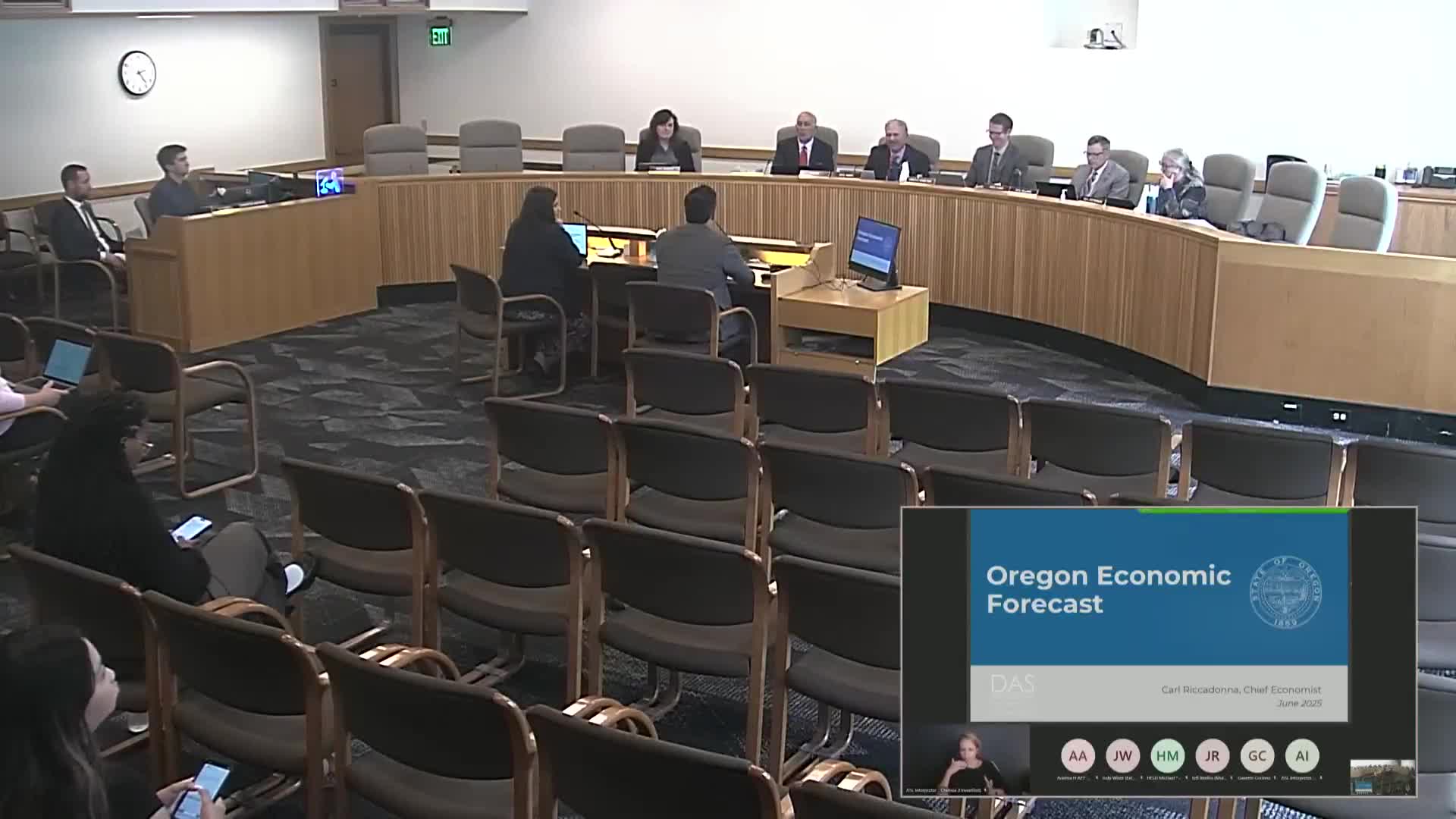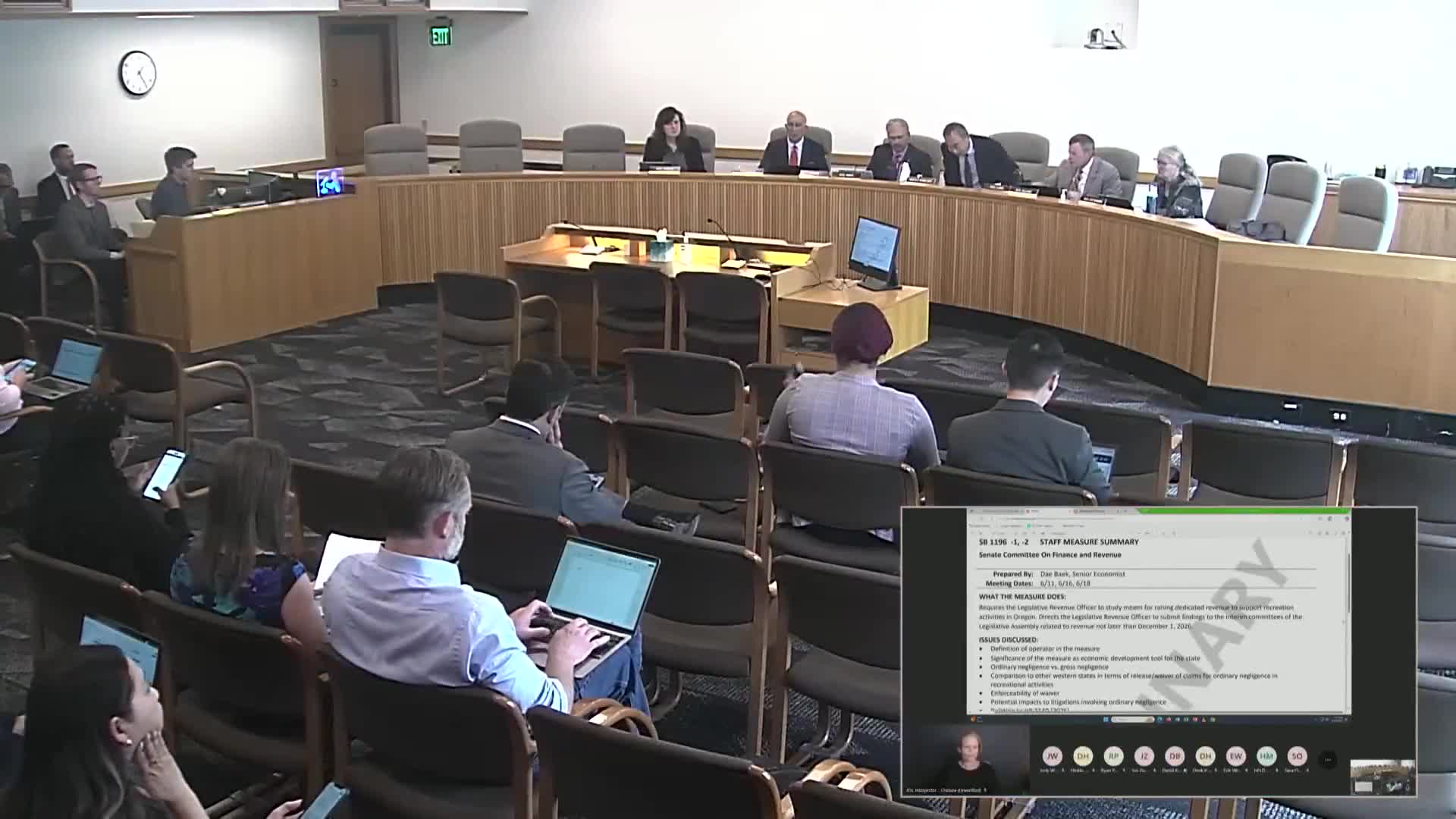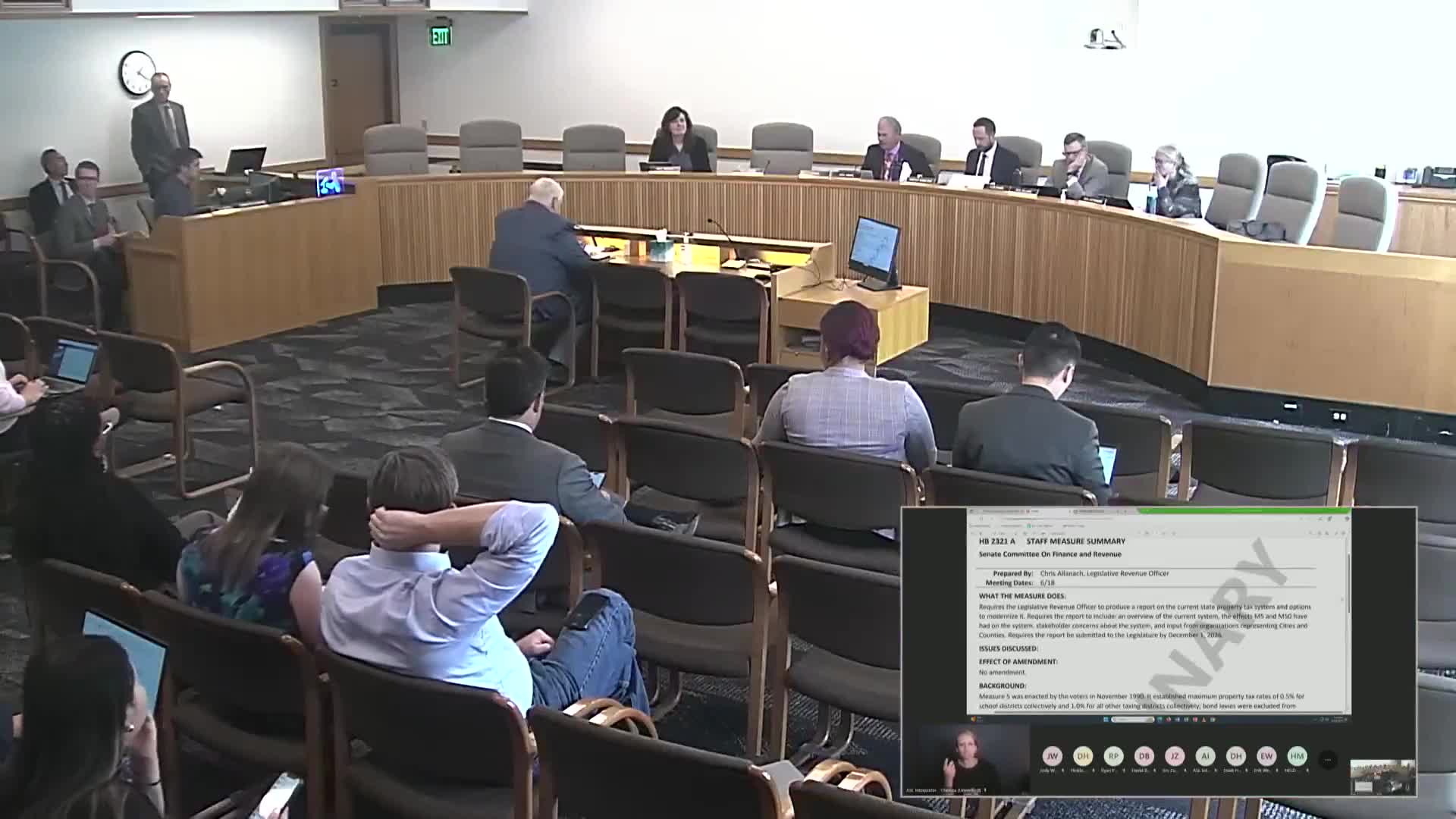Article not found
This article is no longer available. But don't worry—we've gathered other articles that discuss the same topic.

State economists and child‑care officials brief Senate on Multnomah County preschool tax, program overlap and economic indicators

Senate committee advances SB 1196 to strengthen enforceability of recreational liability waivers

